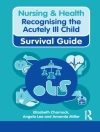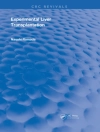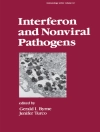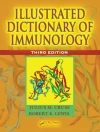As a degenerative disorder of the eye, keratoconus can cause substantial distortion of vision, with multiple images, streaking, and sensitivity to light all reported by patients. Keratoconus: Recent Advances in Diagnosis and Treatment updates ophthalmologists about the innovations that have occurred within the last decade, discussing the diagnostic imaging techniques that have been developed for keratoconus diagnosis, understanding of how examination techniques are related to the evolution of keratoconus, and how to indicate the different therapeutic tools that have been created for keratoconus over the last several years.
Additionally, fundamentals for new diagnostic elements, based on the mathematical, physical and biomechanical data are analyzed in depth for a better understanding of the essential diagnostic steps for the clinician to guide patients towards the most adequate therapeutic tool in the case. Modern keratoplasty techniques, assisted by femtosecond lasersor other devices, are also covered and these techniques, along with the emerging conservative treatments, have added to more precise control of the evolution of the disease.
Inhoudsopgave
Part 1: Introduction.- 1 What is Keratoconus? A New Approach to a Not So Rare Disease.- 2 Modern Pathogenesis of Keratoconus: Genomics and Proteomics.- 3 Epidemiology of Keratoconus.- 4 Histopathology (From Keratoconus Pathology to Pathogenesis).- 5 Keratoconus in Children.- Part 2: Diagnostic Tools in Keratoconus.- 6 Instrumentation for Diagnosis of Keratoconus.- 7 Analyzing Tomographic Corneal Elevation for Detecting Ectasia.- 8 Analyzing Tomographic Thickness for Detecting Corneal Ectatic Diseases.- 9 New Diagnostic Approach of Corneal Topography Maps.- 10 Geometrical Analysis of Corneal Topography.- 11 Early Keratoconus Detection Enhanced by Modern Diagnostic Technology.- 12 Role of Corneal Biomechanics in the Diagnosis and Management of Keratoconus.- 13 Diagnosing Keratoconus Using VHF Digital Ultrasound Epithelial Thickness Profiles.- 14 Brillouin Scanning Microscopy in Keratoconus.- Part 3: The Clinical Profile of Keratoconus.- 15 Keratoconus Grading and Its Therapeutic Implications.- Part 4: Therapeutic Tools in Keratoconus.- 16 Contact Lenses for Keratoconus.- 17 Intracorneal Ring Segments: Types, Indications and Outcomes.- 18 Intracorneal Ring Segments: Complications.- 19 Corneal Collagen Cross-Linking for Corneal Ectasias.- 20 Complications of Corneal Collagen Cross-Linking.- 21 Pediatric Corneal Cross-Linking.- 22 Carbon Nanomaterials: An Upcoming Therapy for Corneal Biomechanic Enhancement.- Part 5. Surgery of Keratoconus.- 23 Surgical Correction of Keratoconus: Different Modalities of Keratoplasty and Their Clinical Outcomes.- 24 The Use of Femtosecond Laser and Corneal Welding in the Surgery of Keratoconus.- Part 6. Refractive Surgery in Keratoconus.- 25 Refractive Surgery in Keratoconus.- 26 Excimer Laser Ablation in Keratoconus Treatment: Sequential High Definition-Guided PRK after CXL.- 27 Iris-Supported Phakic IOLs Implantation in Patients with Keratoconus.- 28 Toric Implantable Collamer Lens for Correction of Myopia and Astigmatism in Keratoconus.- 29 Cataract Surgery in the Patient with Keratoconus.- 30 Adjourn: A Glance at the Future of Keratoconus.
Over de auteur
Jorge L. Alió, MD, Ph D, is professor and chairman of Ophthalmology at the Miguel Hernández University, Alicante, Spain, and formerly chairman of Ophthalmology at the University of Alicante, Spain. He has been appointed with several visiting professorships at universities in the United States and Europe. He has medical and doctorate degrees with first-class honors from the Complutense University of Madrid, Spain.
Dr. Alió s main research interests include refractive, lens and corneal surgery, ocular inflammation and preventative ophthalmology. He has (co-)authored over 640 original articles in peer-reviewed scientific journals and is author or editor of 74 books and over 230 book chapters. He has made over 1, 700 national and international scientific presentations in ophthalmology congresses.
Dr Alió has received multiple awards and distinctions for clinical and research work, including the presidency of the International Society of Refractive Surgery (ISRS) from 2006-2008, LXIII chair of the Academia Ophthalmologica Internationalis, and the Barraquer Award (ISRS-AAO), among over 20 other international and national recognitions. He is also a member of 26 scientific societies and holds executive committee positions in numerous international ophthalmic organizations.












